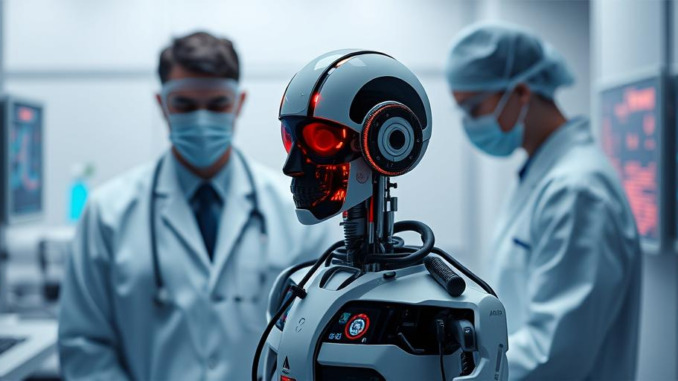
Summary
UCSF developed an AI system that streamlines oncology care, allowing oncologists to focus on personalized treatment. The system aggregates patient data, provides guideline-based recommendations, and continuously learns and updates. This has resulted in improved efficiency, faster treatment decisions, and more consistent care.
Start with a free consultation to discover how TrueNAS can transform your healthcare data management.
** Main Story**
UCSF’s AI: Ushering in a New Era for Oncology
The University of California, San Francisco (UCSF) has unveiled a really interesting AI system, and it’s poised to shake up oncology. With cancer treatment becoming increasingly complex, this tech is designed to help oncologists prioritize what really matters: individual patient care. Instead of drowning in data and guidelines, doctors can now use the AI to streamline their workflow and make quicker, better-informed decisions. It’s a pretty big deal.
Data Wrangling and Streamlined Efficiency
One of the biggest headaches in oncology? It’s the sheer mountain of patient data and how tough it is to quickly find and understand everything. UCSF’s AI tackles this head-on. It automatically pulls together all the important clinical info from a patient’s records before their oncology appointment. The system even flags any missing diagnostic steps, giving a full picture of the patient’s condition from the get-go. This saves time, sure, but it also cuts down on the risk of overlooking something important, you know?
What’s more, the AI gives tailored recommendations right when they’re needed, drawing on national guidelines and the institution’s own policies. This means treatment decisions are always in line with the latest best practices. And because the system is constantly updated with new research and guidelines, doctors always have the most current info at their fingertips. That’s vital in oncology, where things are changing so fast.
More Efficiency, More Personalization
Since UCSF rolled out the AI, they’ve seen some real improvements in efficiency and decision-making. Oncologists are spending way less time sifting through records and guidelines, which frees them up to actually talk to patients and plan treatments. This has sped up care and led to more personalized plans. Basically, by taking care of the administrative stuff and making sure care is consistent, the AI lets oncologists focus on what’s most important: their patients. It’s not about replacing doctors, it’s about enabling them.
In fact, UCSF and Color clinicians ran a study that showed this in action. They looked at 100 de-identified patient cases (50 breast cancer, 50 colon cancer), and the results were pretty clear: oncologists spent less time on paperwork and more time engaging with their patients and crafting personalized treatments.
Addressing the Headaches of Modern Oncology
This AI directly tackles some of the biggest issues facing oncology today. Cancer care is incredibly complex, especially with diseases once thought of as a single entity now broken down into subtypes, each needing a unique treatment plan. And don’t even get me started on those evolving clinical guidelines! National organizations are constantly updating them, which makes treatment decisions even harder. Plus, getting access to specialized oncologists is becoming more difficult. Many regions are facing shortages, which leaves general practitioners to handle initial workups and planning. And sometimes they lack the specialized training to really keep up with all those guidelines, right?
It can be tricky, for sure. That’s why UCSF’s AI system has been a game-changer. By giving evidence-based insights at every step, it empowers both general practitioners and oncologists to deliver better, more consistent, and more personalized care. And because the system keeps learning and adapting, it’ll stay useful as oncology keeps advancing.
Looking Ahead: AI in Oncology
UCSF’s AI system is a major step forward in using artificial intelligence to improve cancer care. I think the focus is exactly where it should be: not replacing human judgment, but enhancing it. As AI gets even better, we can expect even more advanced systems that will make oncology care even more efficient and effective. Which is amazing, because that holds so much promise for improving patient outcomes and transforming the future of cancer treatment. And who wouldn’t want that?


The AI’s ability to flag missing diagnostics is compelling. Could this approach be expanded to predict potential diagnostic delays or resource bottlenecks, proactively optimizing the patient journey and reducing overall treatment timelines?